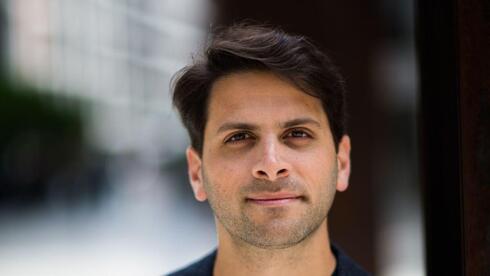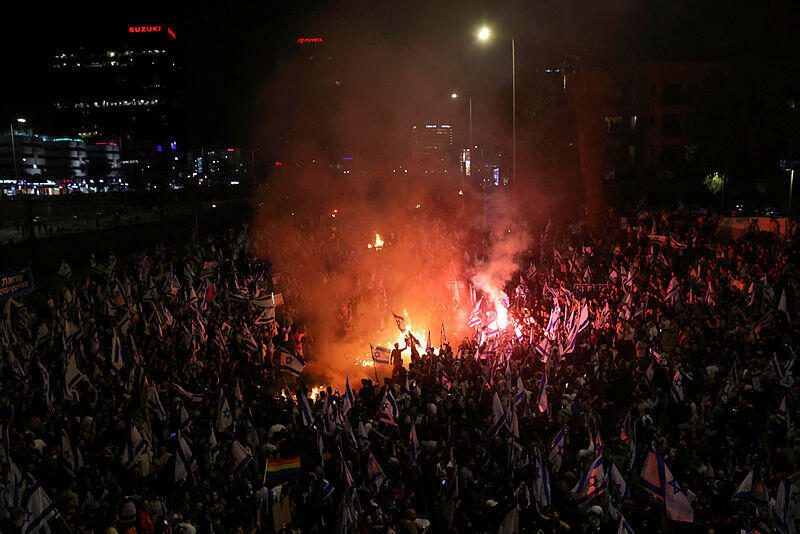
Netanyahu sacks defence minister, sparking mass protests
Tens of thousands of protesters, many waving blue and white Israeli flags, took to the streets late at night across the country. Crowds gathered outside Netanyahu's home in Jerusalem, at one point breaching a security cordon
Israeli Prime Minister Benjamin Netanyahu on Sunday sacked Defence Minister Yoav Gallant, triggering mass protests, a day after Gallant broke ranks with the government and urged a halt to a highly contested plan to overhaul the judicial system.
As news of the dismissal spread, tens of thousands of protesters, many waving blue and white Israeli flags, took to the streets late at night across the country. Crowds gathered outside Netanyahu's home in Jerusalem, at one point breaching a security cordon.
Some three months since taking office, Netanyahu's nationalist-religious coalition has been plunged into crisis over the bitter divisions exposed by its flagship judicial overhaul plans.
"State security cannot be a card in the political game. Netanyahu crossed a red line tonight," opposition leaders Yair Lapid and Benny Gantz said in a joint statement.
They called on members of Netanyahu's Likud party not to have a hand in "the crushing of national security."
In announcing Gallant's dismissal, Netanyahu's office did not name a replacement nor give any other details. "Prime Minister Benjamin Netanyahu has decided this evening to dismiss Defence Minister Yoav Gallant," it said.
Shortly afterward, Gallant, 64, wrote on Twitter: "The state of Israel’s security has always been and will always be my life's mission."
Netanyahu made the decision to sack Gallant after the former navy admiral warned on Saturday that the overhaul plans risked "a clear, immediate and tangible threat to the security of the state" and called for them to be halted.
"At this time, for the sake of our country, I am willing to take any risk and pay any price," Gallant said in his televised address.
Netanyahu acted in response on Sunday night as he was poised to ratify a central part of the overhaul package, a bill that would tighten political control over judicial appointments, handing the executive wider freedom to name judges to the Supreme Court.
Earlier this month, President Isaac Herzog, the head of state who is supposed to remain above politics, warned that the country faced "disaster" unless a broader consensus could be reached on how to overhaul the judiciary.
But Netanyahu, on trial on corruption charges that he denies, has vowed to continue with a project he says is needed to rein in activist judges and restore the proper balance between an elected government and the judiciary.
The United States said it was deeply concerned by Sunday's events and saw an urgent need for compromise, while repeating calls to safeguard democratic values.
As protesters poured into the streets, police used water cannons to push them back from Netanyahu's residence in Jerusalem, while in Tel Aviv, where hundreds of thousands have taken to the streets since the beginning of the year, protesters lighted several bonfires on a main highway.
The protests dwindled as the night went on, and eventually police forcefully removed a smaller crowd that refused to leave.
It was not immediately clear whether the protests would affect the government's tactics. At least three Likud ministers said publicly that it was time to reevaluate their strategy and they would support halting the legislation if Netanyahu decided to do so. The head of the parliamentary committee deciding on the legislation said discussions would continue on Monday.
The crisis came as Israel's security establishment has been bracing for potential violence in the coming weeks as the Muslim holy month of Ramadan overlaps with the Jewish Passover and the Christian Easter celebration.














